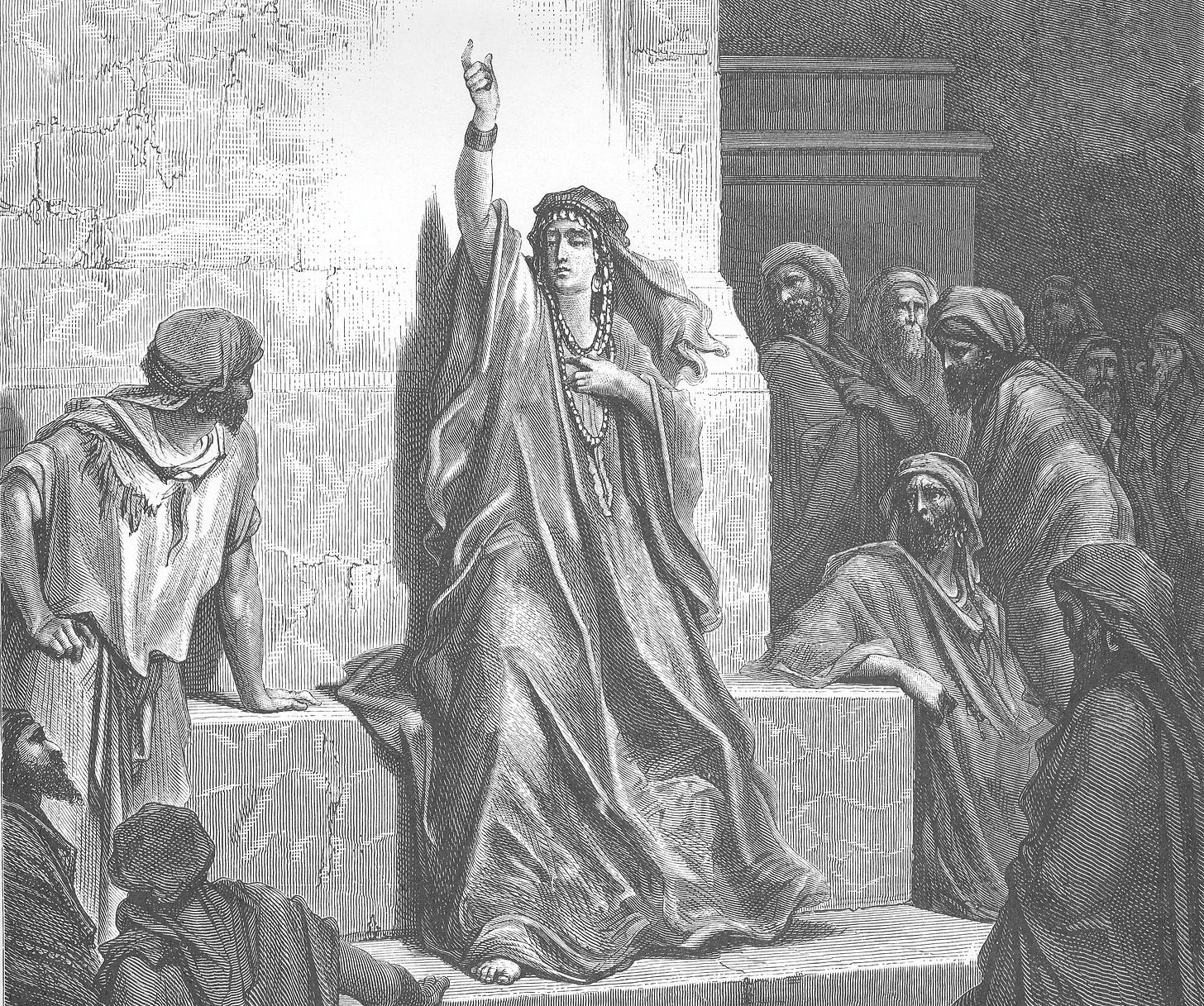*Jesus is in scare quotes because that’s not his name. Most Christians know this but err on the side of (English-speaking) tradition rather than Biblical consistency; Ἰησοῦς is Joshua in the Old Testament but “geez-us” in the New? No. It matters to get the name of the Son of God right.
I’ve been off the exegetical kick for awhile what with all the transition, so I recently decided to take some time to dig into a seemingly minor thing that’s been tumbling around my brain. Specifically, I’ve been interested in the etymology of Nazareth and how it seems to imitate a subtle detail from one of Israel’s earliest war stories… So let’s talk about “Jesus” and Barak. Not the 44th president of the United States, but the prophet Deborah’s commander in chief.
The book of Joshua tells of the capture and (re)distribution of the Promised Land (AKA Canaan) by its namesake, the son of Nun. In Judges, the victory must be repeated when Barak, a Naphtalite, is placed under the command of the prophet Deborah to fight “Jabin, king of Canaan”. (Judges 4:2) Barak is called “the son of Abinoam from Kedesh-naphtali.” (4:6) Kadesh was a Levitical sanctuary city within the newly established boundaries of the tribe of Naphtali. The city’s Hebrew name, Qeḏeš, derives from qāḏaš, a primitive verb that means to bless or make holy. Most tribes had been given land, but not the priestly Levites. The bearers of holiness were given charge of six cities of refuge where mercy ruled rather than strict justice.
Qeḏeš/Kadesh is emphasized as the hometown of Barak, the son of Abinoam and famed military leader. His victory over Canaan serves as a reiteration and restoration of what God had done through Joshua, the son of Nun and even more famous military leader. Canaan and Sisera are stand-ins for everything that is foreign to Israel and to God’s blessing. In contrast to Barak, from the holy (qāḏaš) city in Naphtali, the Canaanite general “lived in Harosheth-hagoyim”, (4:2) literally a place built, made (ḥărōšeṯ) of (ha) Gentiles. The goyim of the Bible are those forces against which Israel is in constant contention.
Barak is therefore not just the mythic champion of Israel, he is also the symbolic representation of everything that is blessed and holy. Sisera, on the other hand, represents anything and everything against which God’s forces are arrayed. Their hometowns are integral to the symbolism that the Bible sets up. With that in mind, it matters where Joshua, the son of God, came from.





